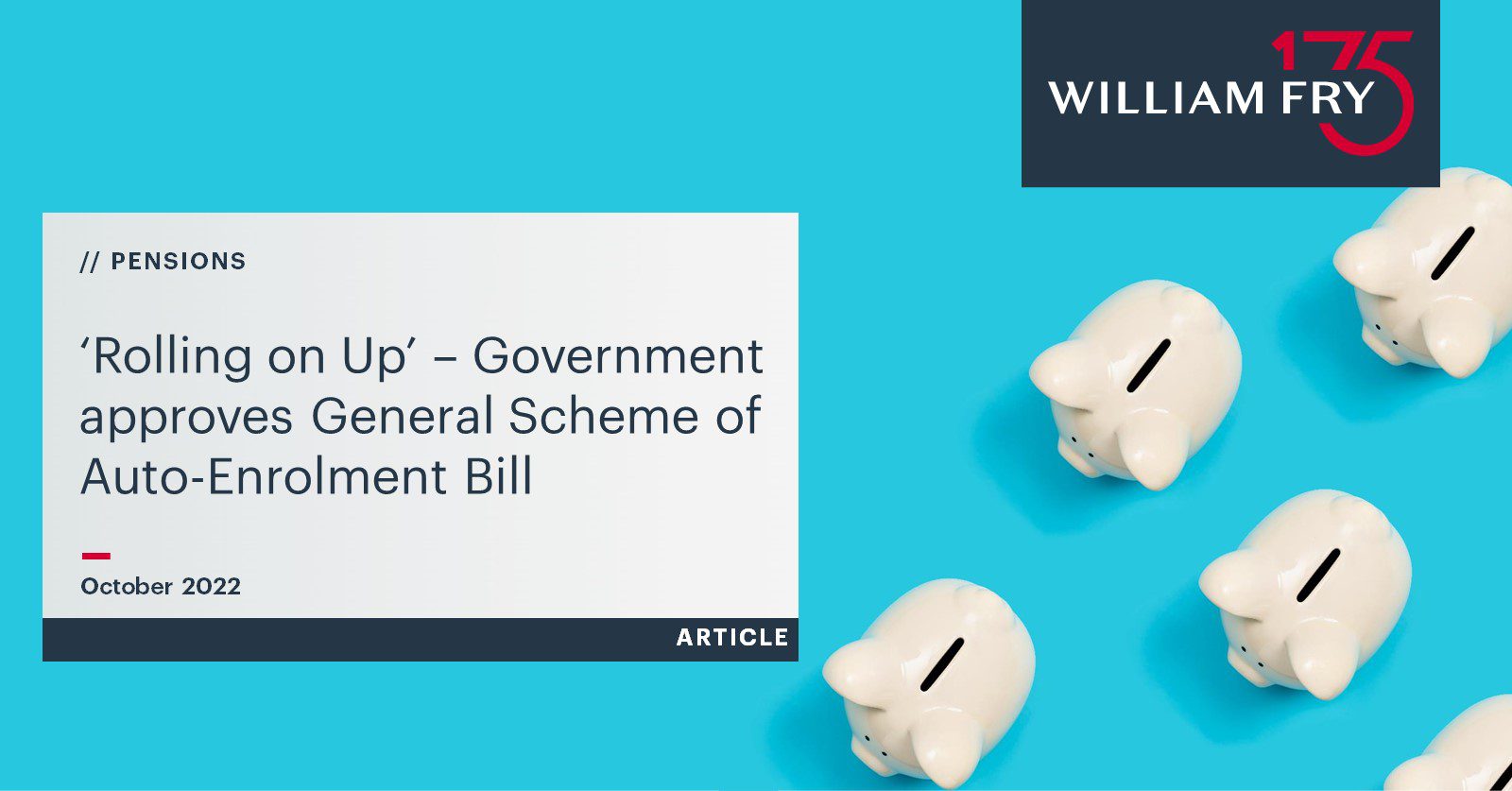On 10 October 2022, approval of the General Scheme of the Automatic Enrolment (AE) Retirement Savings System Bill (the Heads of Bill) was announced.
Background
A proposal for AE has been under development for the Irish pension sector for over a decade. For background, see our briefings on the publication of the National Pensions Framework, which then led to the publication of the Strawman Proposal, and then to the announcement of the final design of the proposed AE system last March.
As a quick re-cap, AE provides for auto-enrolment in a workplace pension of employees between the ages of 23 and 60 and earning more than €20,000. The system would operate on an ‘opt-out’ basis which means, in broad terms, that employees who wish to ‘opt-out’ can only do so after being enrolled for 6 months and at which point they would be refunded their contributions but then re-enrolled periodically.
The introduction of AE is expected to result in the enrolment of 750,000 employees in a new workplace pension scheme, which number is expected to grow significantly over time.
What does the recent announcement mean for Employers?
While the final design of the AE system was confirmed back in March, we now have a timeline for its implementation.
AE will be phased in over the course of a decade; beginning in 2024 with both employer and employee contributions starting at 1.5% of gross salary and automatically escalating every 3 years until the maximum contribution of 6% is reached in year ten. Employer contributions will match those of the employee and the State will make a contribution at a rate of €1 for every €3 saved by the employee.
Once implemented, AE will create an additional cost for employers who do not already provide a pension scheme for their employees. Further details of how the AE system will interact with existing pension schemes operated by employers are awaited.
What’s next?
The Heads of Bill have been referred to the Oireachtas Committee on Social Protection for pre-legislative scrutiny. As it was highlighted as a key piece of legislation in the Government’s Autumn Legislation Programme, a Bill is expected to be published sometime in Q4 this year. However, and despite political momentum, a provisional implementation date of 2024 for the AE system seems ambitious.
In the meantime, employers should continue to monitor developments to ensure that they are adequately prepared for AE once implemented.
For more information on the AE system, please contact Ian Devlin, Ciara McLoughlin, Jane McKeever or your usual William Fry contact.
Contributed by Conor Forde & Jane McKeever
Recommended Insights










